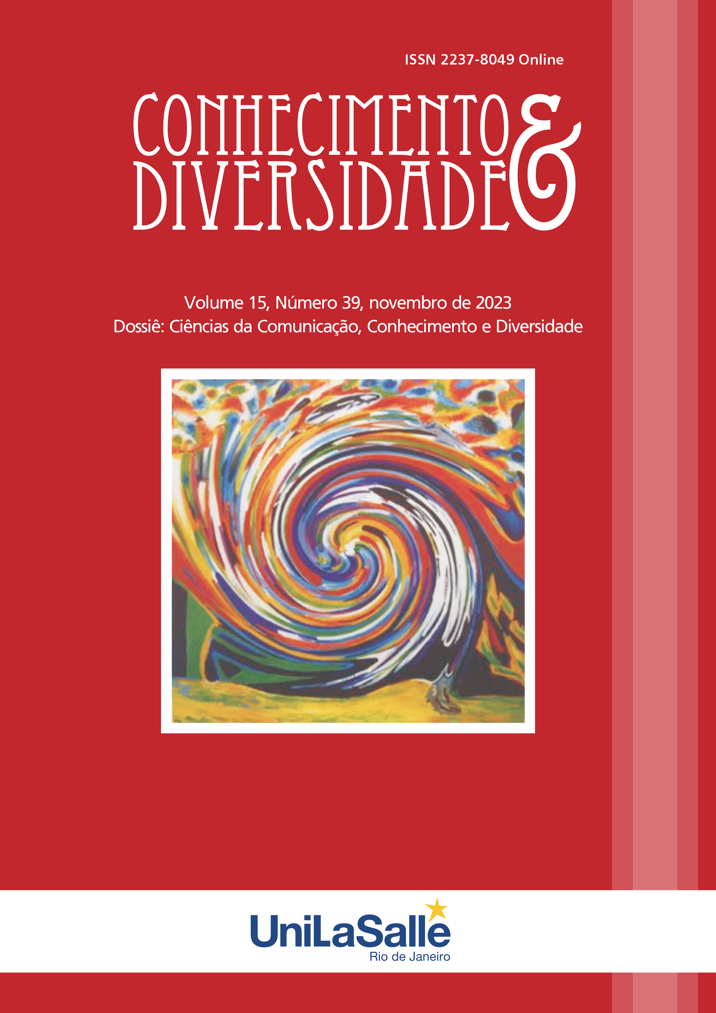ENHANCING PERSONALIZED LEARNING WITH A RECOMMENDATION SYSTEM IN PRIVATE ONLINE COURSES
DOI:
https://doi.org/10.18316/rcd.v15i39.11144Palabras clave:
Recommendation system, Personalized learning, Learning styles, Technology integrationResumen
This paper proposes the integration of a recommendation system into private online courses as a means to enhance personalized learning. By leveraging the power of data analysis and algorithms, this paper argues that the recommendation system can tailor course content, study materials, and learning resources to meet the unique needs and preferences of individual students. The recommendation system, as detailed in this paper, operates by analyzing various factors such as students' learning patterns, performance data, and personal interests. Based on this analysis, the system dynamically adapts the course curriculum to provide additional resources and support for topics that students find challenging, while also offering advanced materials for those who are progressing rapidly. This adaptive approach, as presented in this paper, ensures that each student receives personalized guidance and support, enabling them to navigate the course at their own pace. As outlined, the recommendation system assists in creating customized study paths for students. By considering their learning goals and interests, this paper argues that the system suggests the optimal order of modules or topics within the course. In addition to personalized course content, as discussed in this paper, the recommendation system also suggests relevant learning resources to complement the core materials. These supplementary resources, as highlighted in this paper, such as articles, videos, interactive exercises, or recommended readings, are tailored to each student's specific needs. By providing diverse and targeted resources, the system, as detailed in this paper, ensures that students have access to a rich and varied learning experience, thereby promoting a deeper understanding of the subject matter. Moreover, as emphasized in this paper, the recommendation system fosters peer collaboration by suggesting study groups, discussion forums, or project teams based on shared interests, learning styles, or complementary skill sets. By connecting students with like-minded peers, as proposed in this paper, the system encourages active participation, knowledge sharing, and collaborative learning, creating a supportive and engaging learning community. For courses that focus on skill development, as argued in this paper, the recommendation system helps students identify their strengths and weaknesses. By analyzing their performance data, this paper suggests that the system can recommend targeted exercises, projects, or practice materials to improve specific skills. It can also suggest related courses or modules that build upon students' existing knowledge, as detailed in this paper, allowing them to develop a comprehensive skill set. The recommendation system, as presented in this paper, incorporates personalized assessments and feedback mechanisms to evaluate students' progress. It recommends practice quizzes, mock exams, or interactive assessments to help students gauge their understanding and identify areas for improvement. The system also provides tailored feedback, as discussed in this paper, highlighting strengths and offering specific strategies for enhancement, thereby fostering a growth mindset and supporting continuous learning.
Citas
J. A. Konstan and J. Riedl, “Recommender systems: from algorithms to user experience,” User Model User-Adap Inter, vol. 22, no. 1, pp. 101–123, Apr. 2012, doi: 10.1007/s11257-011-9112-x.
G. F. F. da Cunha, “Data analysis and recommender system architecture for e-commerce platforms,” masterThesis, 2021. Accessed: Sep. 10, 2023. [Online]. Available: https://repositorium.sdum.uminho.pt/handle/1822/81087
A. M. Idkhan and M. M. Idris, “Dimensions of Students Learning Styles at The University with The Kolb Learning Model,” Int. J. Environ. Eng. Educ., vol. 3, no. 2, pp. 75–82, Aug. 2021, doi: 10.55151/ijeedu.v3i2.60.
S. A. Khan, M. H. Arif, and M. I. Yousuf, “A Study of Relationship between Learning Preferences and Academic Achievement,” Bulletin of Education and Research, vol. 41, no. 1, pp. 17–32, Apr. 2019.
H. Xie, H.-C. Chu, G.-J. Hwang, and C.-C. Wang, “Trends and development in technology-enhanced adaptive/personalized learning: A systematic review of journal publications from 2007 to 2017,” Computers & Education, vol. 140, p. 103599, Oct. 2019, doi: 10.1016/j.compedu.2019.103599.
R. Syofyan and M. K. Siwi, “The Impact of Visual, Auditory, and Kinesthetic Learning Styles on Economics Education Teaching,” presented at the First Padang International Conference On Economics Education, Economics, Business and Management, Accounting and Entrepreneurship (PICEEBA 2018), Atlantis Press, Jul. 2018, pp. 114–121. doi: 10.2991/piceeba-18.2018.17.
Descargas
Publicado
Número
Sección
Licencia
Derechos de autor 2023 Jalal Lahiassi , Souhaib Aammou , Oussama EL Warraki

Esta obra está bajo una licencia internacional Creative Commons Atribución 4.0.
Tal como recomienda el Public Knowledge Project, RCD adopta para sus artículos una licencia CREATIVE COMMONS: Attribution CC BY 4.0
Esta licencia permite que otros distribuyan, remezclen, adapten y desarrollen su obra, incluso con fines comerciales, siempre que le atribuyan a usted el mérito de la creación original.
Esta es la licencia más adecuada que se ofrece.
Recomendado para la máxima difusión y utilización de los materiales bajo licencia.



